Publications
Articles, publications, books, tools and multimedia features from the U.S. Institute of Peace provide the latest news, analysis, research findings, practitioner guides and reports, all related to the conflict zones and issues that are at the center of the Institute’s work to prevent and reduce violent conflict.

Moscow Concert Hall Attack Will Have Far-Reaching Impact
On Friday, terrorists attacked the Crocus City Hall outside Moscow leaving 140 people dead and 80 others critically wounded. Soon after, the Islamic State claimed responsibility for the attack. The terrorist group, which is headquartered in Iraq and Syria, has several branches, including in South and Central Asia. Press reports suggest the U.S. government believes the Afghanistan-based affiliate of the Islamic State, ISIS-Khorasan (ISIS-K), was behind the attack. The Biden administration has publicly noted that it had warned the Russian government of the terrorism threat in early March in line with the procedure of “Duty to Warn.”
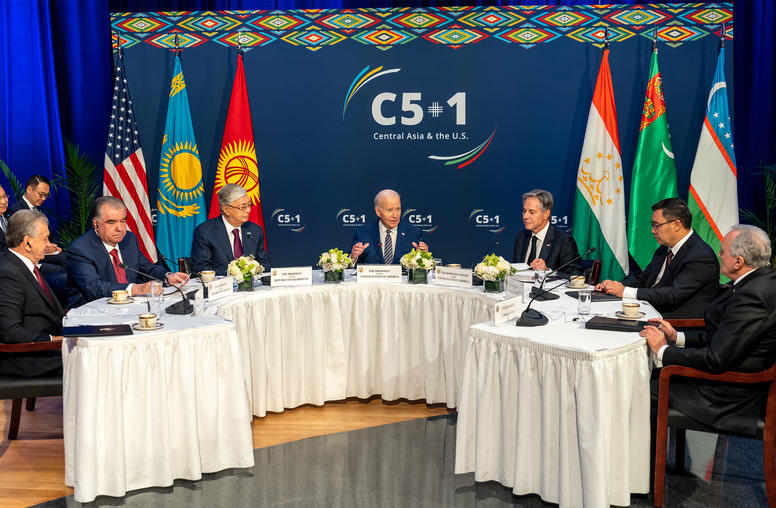
New Central Asian Leaders Look to Balance Relations with Major Powers
For the first time ever, all five presidents of the Central Asian republics (Kazakhstan, Kyrgyzstan, Tajikistan, Turkmenistan and Uzbekistan) met in-person with a U.S. president as part of “C5+1” summit on the sidelines of last week’s U.N. General Assembly.
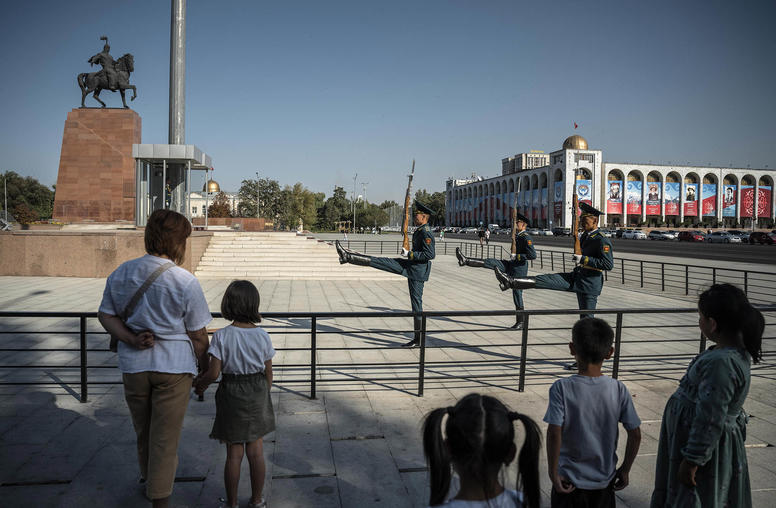
China Looks to Fill a Void in Central Asia
As the Group of Seven met at the end of last week in Hiroshima, Japan, China organized a summit with Kazakhstan, Kyrgyzstan, Tajikistan, Turkmenistan and Uzbekistan, marking a new chapter in Beijing’s engagement with the region. Central Asian states are looking for a new partner to help ensure their own security against domestic rebellions, as Russia’s war in Ukraine has limited Moscow’s ability to fulfill a longstanding role as a guarantor of domestic stability in the region. While most of the summit’s public discussion focused on economic and trade issues, China noted that it would help Central Asia enhance it’s law enforcement and security capabilities, which aligns with Beijing’s intensifying campaign for “global security.”
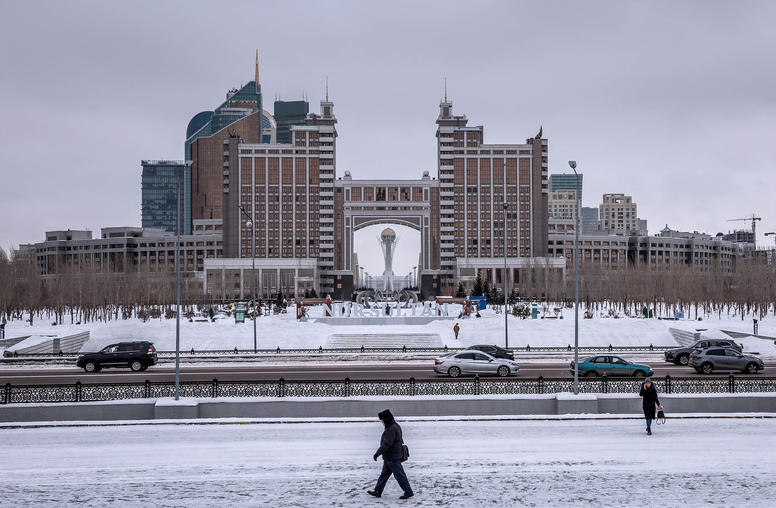
Blinken Debuts New U.S. Approach in Central Asia
U.S. Secretary of State Antony Blinken visited Kazakhstan and Uzbekistan this week, where he signaled that Washington is changing tact in the region. For nearly two decades, U.S. engagement in the region focused on how it could help Washington in Afghanistan. Following the Afghanistan withdrawal, U.S. policy in Central Asia should be more modest, focused on helping these countries achieve balance in their relations with each other and the outside world, particularly in an era of great power competition. After all, these countries are neighbors of Russia and China and can’t afford to choose sides.

Gavin Helf on the Aftermath of Kazakhstan’s Unrest
Kazakhstan has stabilized after protests broke out to start the new year. USIP’s Gavin Helf says while the sudden unrest was driven by “real, honest-to-goodness protests … what we really saw was the weakness of authoritarian systems,” as loyalists of the previous and current leaders clashed amid the public upheaval.
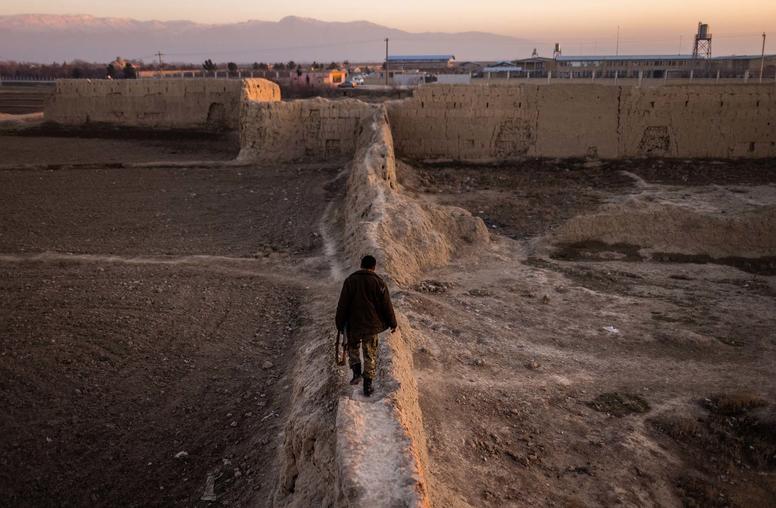
Central Asia Prepares for Taliban Takeover
Last week’s conference in Tashkent, Uzbekistan was originally supposed to focus on regional connectivity in South and Central Asia. But the Taliban’s surge in recent weeks consumed the regional conference and has many in the region wary of what’s next. As U.S. and NATO forces draw down their military presence in Afghanistan, the country’s northern neighbors have witnessed Taliban fighters swiftly overrun most of the rural parts of northern Afghanistan, establishing control over nearly all of the 1,500-mile border between Afghanistan and Turkmenistan, Uzbekistan and Tajikistan. By all indications, Central Asian states are preparing for a new reality in Afghanistan, one where the Taliban control most, if not all, of the country.
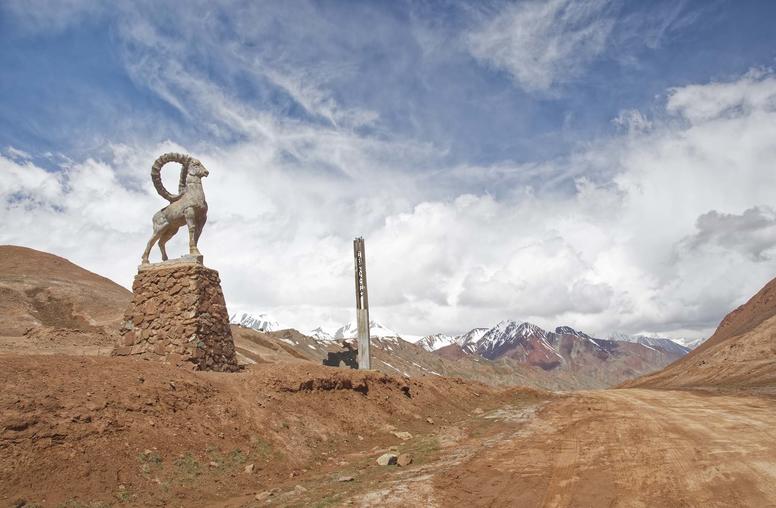
Border Clash Between Kyrgyzstan and Tajikistan Risks Spinning Out of Control
A dispute over irrigation water triggered a clash between Kyrgyzstan and Tajikistan last week that quickly spread along the border, resulting in the death of more than 40 people and displacing 30,000 on the Kyrgyz side — the worst such incident in the region since the collapse of the Soviet Union. While such flare-ups, albeit less deadly, are a regular occurrence in the region, this time the situation could get out of hand as the leaders of both countries are incentivized to stoke a crisis that distracts from the domestic unrest caused by their mismanagement of the COVID-19 pandemic.
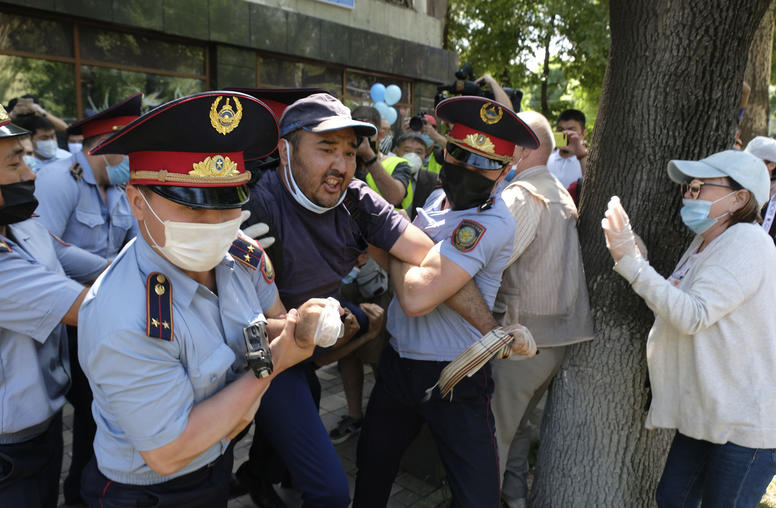
Looking for Trouble: Sources of Violent Conflict in Central Asia
This report offers a road map for understanding the most likely sources of violent conflict in the post-Soviet nations of Central Asia—ethno-nationalism and nativism, Islam and secularism, water resources and climate change, and labor migration and economic conflict. The analysis draws from emerging trends in the region and identifies the ways in which Central Asia’s geography and cultural place in the world interact with those trends. It suggests that the policy goals of the United States, Russia, and China in the region may be more compatible than is often assumed.
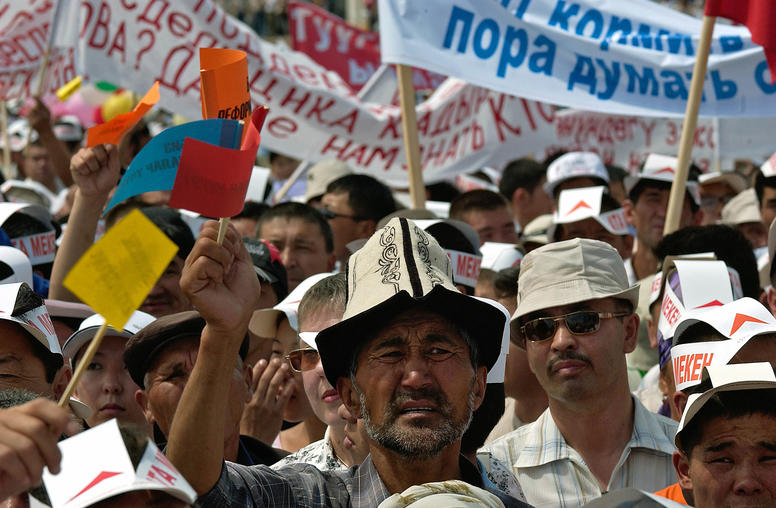
In Kyrgyzstan, It’s Easier to Start a Revolution than to Finish It
For the third time in 15 years protesters in the Kyrgyz Republic capital of Bishkek have seized and set fire to the “White House,” the seat of parliament and presidential staff. The situation is chaotic with multiple political actors claiming to be in charge and the threat of chaos expanding to the provinces. It is a scene all too familiar to Kyrgyzstan in the last 15 years, leading to a cycle of protests and calls for advancing democracy followed by backsliding into authoritarianism. While working to stabilize the situation in the short term, the United States and regional actors should be cognizant of the country’s deep regional and ethnic fault lines and support actors in Kyrgyzstan who will address them so that this time the cycle does not repeat itself.
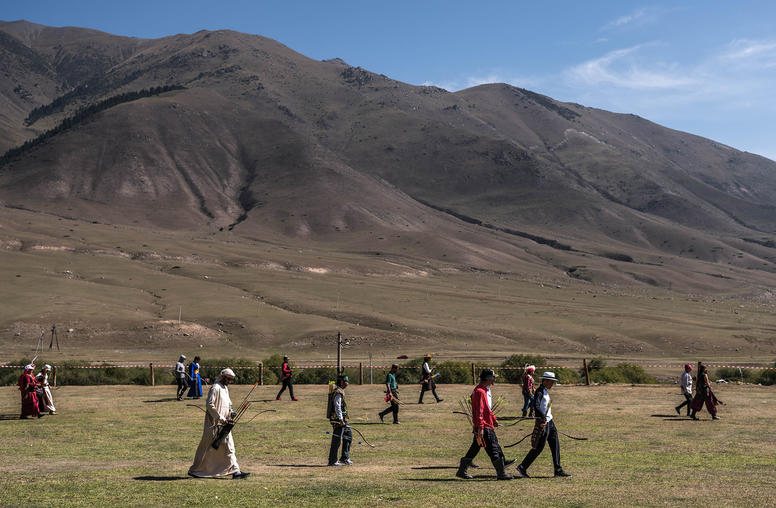
Central Asia and Coronavirus: When Being Nomadic Isn’t Enough
“Do you know how nomads prevent conflict?” a Kazakh friend once asked me. “I turn this way; you turn the other way. We start walking.” In ordinary times in Central Asia, this traditional “social distancing” may be enough to avert friction. But in a time of pandemic, it isn’t. Like elsewhere, the novel coronavirus is challenging Central Asian states and societies in new ways and revealing a great deal about the character of peoples and their governments. Here’s a look across the region at how the crisis has affected its states and how leaders have responded.